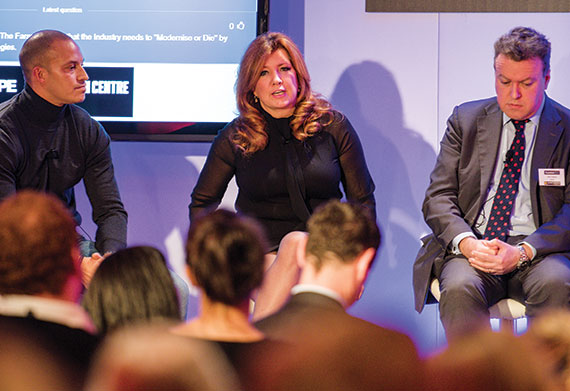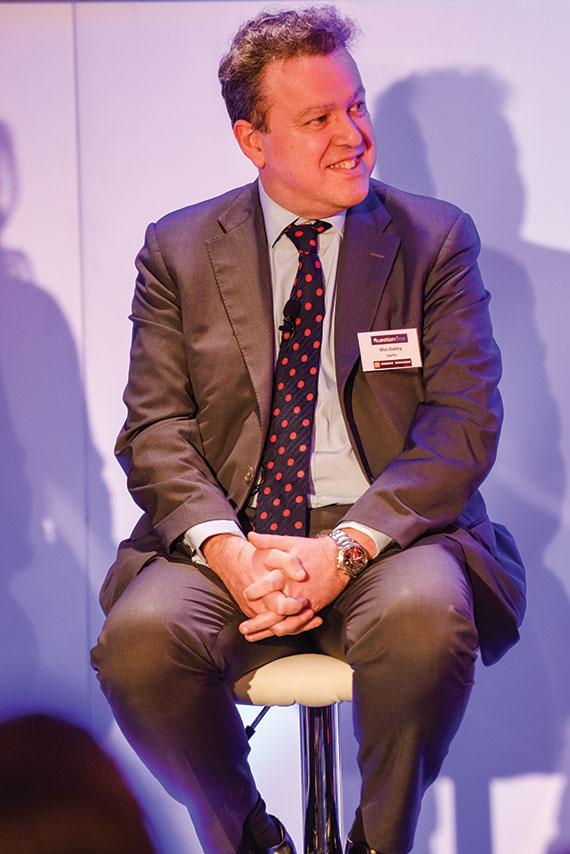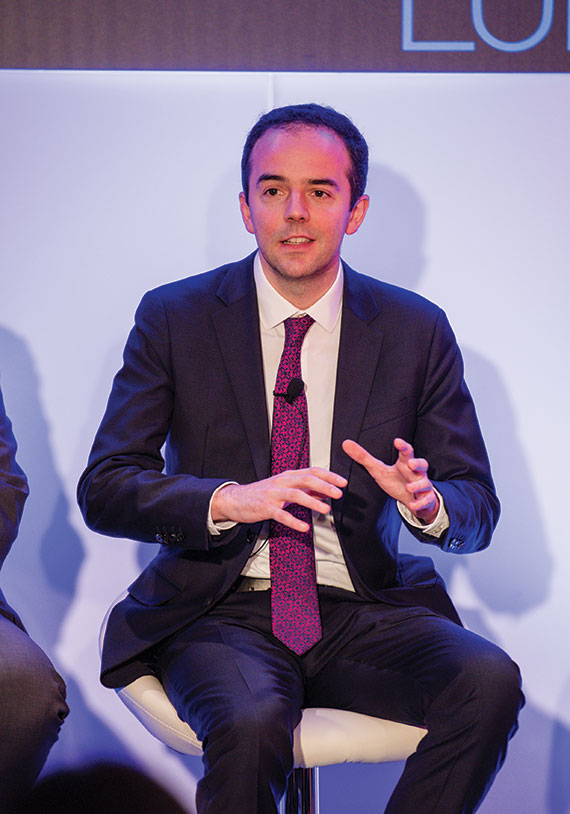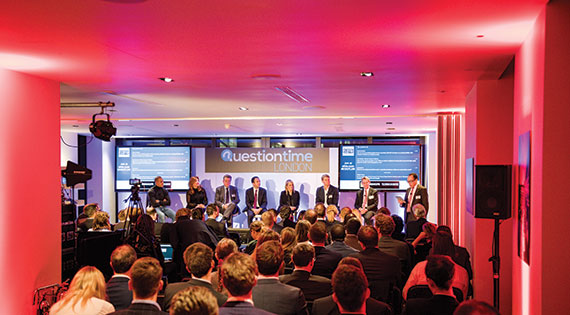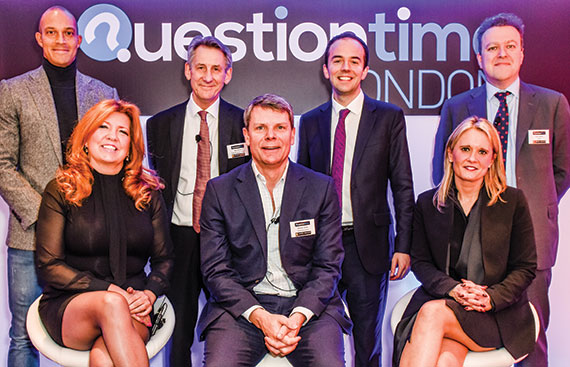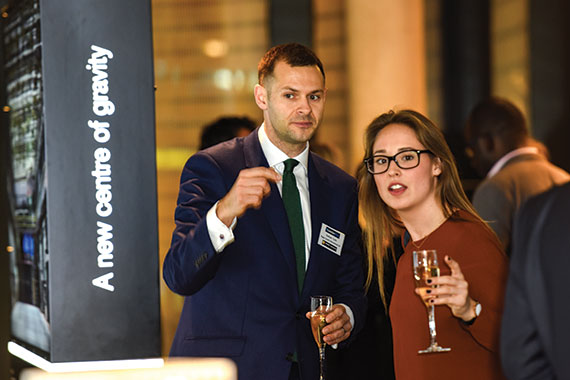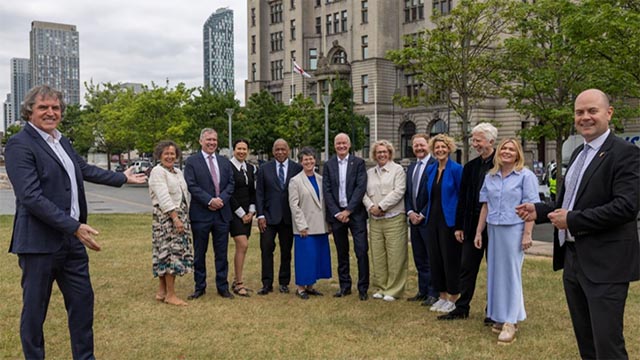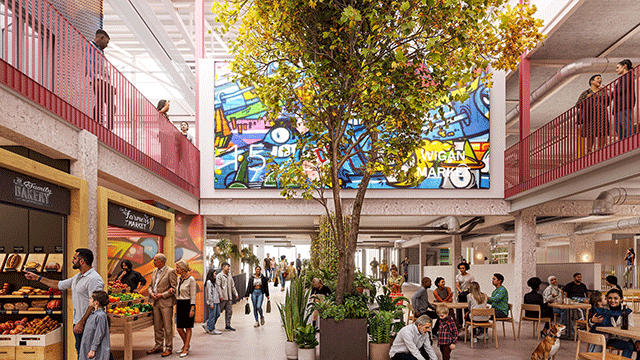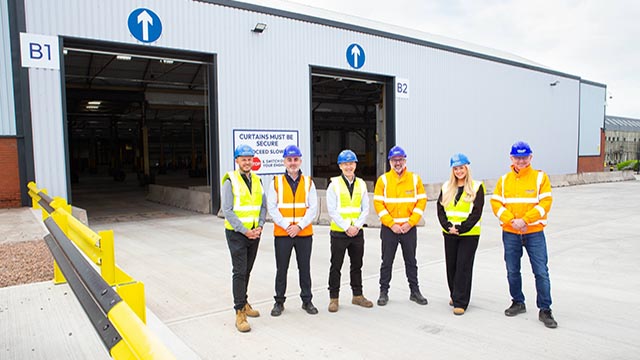After a year full of twists and turns, where does London now fit in with the rest of the world?
The result of the EU referendum and uncertainty in Europe, Donald Trump’s US election victory and tremors in the Chinese economy will all have shaken UK property. London will need to stay agile to meet the rising challenges.
Whichever way the economy goes in 2017, the capital must ensure it remains a leading player in the “megacity spectrum” according to economist and DRPM Group founder Pippa Malmgren.
Speaking at EG’s London Question Time, the pro-Brexit businesswoman also warned against dwelling on the foreboding that the year’s political events have given rise to.
“The worst thing is fear; there is so much fear and what I see, as an economist, is hope for optimism. There is room for unbelievable innovation in the world economy.”
Malmgren joined industry heavyweights in front of a capacity crowd at EG’s final debate of the year, held at Stanhope’s Television Centre in White City, W12 on 7 December.
While other panellists expressed disappointment at the prospect of the UK leaving the EU, Malmgren challenged the majority view with where she saw the opportunities.
“Money is like water, it will move to wherever it faces fewest obstacles – the lowest tax rates, the least red tape. The UK would be deeply challenged to have higher taxes and more red tape than the EU. Internationally, investors view Britain as a place where they can trust the world law – and their number one location for putting foreign direct investment was already Britain, not the EU.
“Britain’s legal framework will become even stronger and probably more business-friendly than before, so London will be bigger in future because of Brexit.”
The standardisation of corporate bankruptcy law in the EU was a “near miss” Britain had averted, she said.
James Murray, London’s deputy mayor for housing, said despite Brexit-related caution, London must continue to relay the right messages.
“London is open to investment – we just need to make sure it is not becoming more closed as a city. London being open is central to the message we promote,” he said.
But a debate ensued about whether London was really open for business, when Benjamin Lesser of Derwent London suggested the challenges the city posed, including the planning system, infrastructure, connectivity and CIL regime, made development more difficult than other European cities.
Murray responded with reassurance that steps were being taken to tackle these pain points, including how the GLA was using policy to speed up development.
“If applicants meet the 35% affordable housing threshold and build it out within two years you can bypass all viability and the delay that brings with it – the real beauty of this is that it was welcomed pretty broadly when it came out.”
Welcoming the policy, Alistair Shaw, managing director of Television Centre, said it would put developers on a level playing field.
Neil Alford, associate provost for academic planning at Imperial College, added that when working on complex masterplans, keeping things simple was key.
For Savills’ head of UK research Mat Oakley, the solution to London’s challenges was a shift in power.
“Give James’s office all the power,” he said. “London doesn’t think like a single city. I am a strong believer that we should have a model like New York and Tokyo where there is one team in charge of everything – they can raise capital. If you issued a 50-year London infrastructure bond today, you would be killed in the rush to invest in that – and woe betide if you are working on a site which is across two local authorities.”
Malmgren suggested Oakley was advocating a ‘Lexit’.
She went on to highlight the importance of tech in today’s urban spaces.
“I am a huge fan of tech, but I think we put maybe too much emphasis in creating a ‘tech triangle’. We need the whole country, not corridors and little places. If they are part of pushing tech across the whole nation, great – but if you think the problem is solved in one narrow place, it isn’t.”
She added: “We should be thinking about a ‘techconomy’ – in this part of London there are plans for a huge new manufacturing hub. This is the new Shoreditch – the new cheap part of town.”
And the importance of tech shouldn’t just be about connecting the country to the rest of the world, but also how buildings are designed.
“London is going down, sideways and up. This will create more capacity, but the big issue is ignorance about technology and fear of it – it will hold a lot of the solutions,” said Malmgren.
“We have local planners who take a very traditional approach and have very conservative ideas about what constitutes the right path, but we are going to start integrating buildings into multiple uses and planners will have to face this.”
Lucy Tilley, associate director, UK and global projects at Adjaye Associates, added that architects had a responsibility to open a dialogue with planners about buildings moving to the next level. She said: “We need to have a debate with them about how a building isn’t just what it looks like on the outside. We are making spaces for people to live in. What value can a building give? Every borough has different issues, but we need to get to the next level of discussion.”
Tech should also play a larger role in linking different parts of London’s communities, especially when serving a growing population.
Former footballer Bobby Zamora, co-founder of the Legacy Foundation which aims to deliver developments with 50% affordable housing and sports facilities, said it was vital to work with tech companies on opportunities for people who lived nearby.
“We want to make sure people in our community understand and can work at Amazon [which has a site near a legacy development in Bedfordshire], and it is down to us to teach them, giving them the skills and direction and making sure Amazon will employ people in the local community on their doorstep,” he said.
But there was a danger of putting all the eggs in one basket, according to Oakley, who cautioned: “We can’t just design all our schemes to suit tech occupiers – we have to start looking for the next group.”
Tilley added that the way tech companies design flexible office space should be an example for the future of housing.
“Modular is something we are exploring at the moment and we just need to make sure it is built to last and the quality is there,” she said.
From connecting people within the city, the debate again turned to looking outward. Oakley said there was increasing acceptance that “we haven’t dropped off the edge of a cliff”.
He added: “Uncertainty is a bit like excitement; you can’t sustain it for very long. I think we’ve probably gone back into the state of slight optimism. It will probably slip a few moments, but next year looks reasonably stable to us.”
Echoing the positive sentiments, Shaw said his greatest hope for 2017 was for the industry to “stop moaning and get on with life”.
Housing remains key challenge
Housing dwarfs every other challenge in the capital.
But Neil Alford, associate provost for academic planning, Imperial College London, criticised the high cost of homes. “We have PhD and early career researchers who have a real problem renting in London or anywhere near Imperial College,” he said
Deputy mayor for housing James Murray said private rented housing was an “essential part” of a range of solutions to the crisis.
Alistair Shaw, managing director, Television Centre added: “PRS is part of the solution but it isn’t the Holy Grail. We think it applies in the outer zones. It doesn’t work in central areas because the margins are very tight.”
“For us PRS is the Holy Grail,” countered Bobby Zamora, footballer and co-founder of the Legacy Foundation. “It drives our scheme. We contact councils and say we will build you 50% social and 50% PRS – from which the council can take revenue and pay back funds which are investing, like Aviva and M&G.”
Twitter wall
@leannetritton ‘From a US and Chinese perspective, Birmingham is a suburb of London.’ #EGQTLDN
@PropertyJT Great question time with @EstatesGazette tonight #EGQTLdn and really interesting panel, many thanks @RobertZamora25 @DamianWild @DrPippaM
@RobertZamora25 Bit different for me but a real pleasure to listen and discuss housing. Question time @EstatesGazette
@MeganGraceHill Commuters are dwindling according to #EGQTLDN panel. Hard to agree when I spend my commute crammed like a sardine














